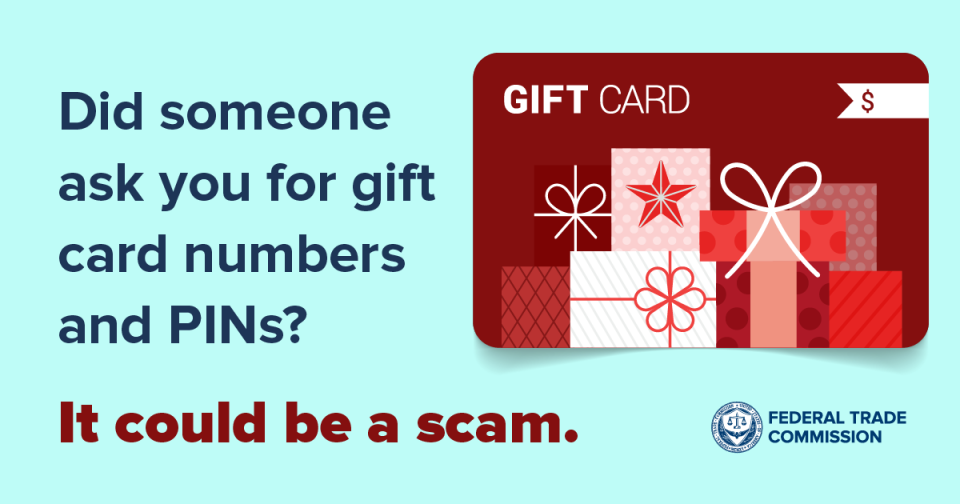Whether you’re kicking off the fall semester with a new internship or looking for an on-campus gig, there’s a scam you should know about.
You get a text or an email from someone who says they’re your boss (spoiler alert: they’re not really your boss). They have a favor to ask. They want your help with a surprise — maybe a party or some other reward for your coworkers. No matter the details, the ask is the same: they want you to buy some gift cards and send them photos of the card numbers and PINs. They promise to pay you back, sometimes even by the end of the day. But wait: before you decide to “help” your “boss,” keep reading.
It’s a scam. It’s not your boss, there’s no surprise party or reward, and you won’t get paid back. It’s a scammer trying to get your money.
How can you spot a gift card scam like this?
- Scammers will say it’s urgent. They don’t want you to have time to think about what they’re saying or talk to your actual boss or someone else you trust. Slow down. It’s a scam.
- Scammers will tell you which gift card to buy (and where). They might say to put money on an eBay, Google Play, Target, or Apple gift card and send you to a specific store to get them.
- Scammers will ask you for the gift card number and PIN. The card number and PIN on the back of the card let the scammer get the money you loaded onto the card — even if you still have the card itself. Never share those numbers or send a photo of the card. That’s a sure sign of a scam.
If you sent gift card numbers and PINs to a scammer, report it to the gift card company right away and ask for your money back. Be ready to give them the card numbers when you call. And then tell the FTC at ReportFraud.ftc.gov.


Good to be aware of. Thank you for the alert.
Madam/Sir, On social media websites sometimes scammers introduce themselves as a college going students and express their urgent
requirements in order to get gift
cards of their
designated companies. Thank you!
Valuable and timely information - especially given holidays are coming up!